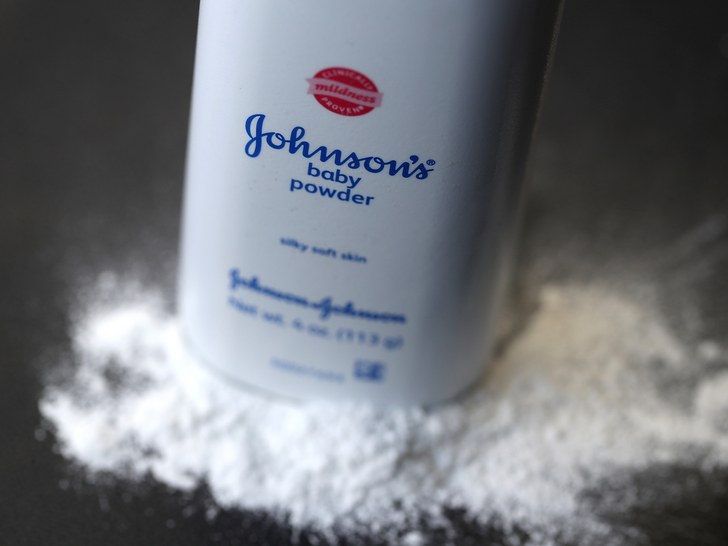Talc powder companies, particularly during the mid-20th century, marketed their products aggressively to women, emphasizing the use of talc for feminine hygiene. These marketing campaigns often targeted specific demographics, including Black and Hispanic women, with culturally tailored messaging that associated talc powder with cleanliness, freshness, and elegance.
Over time, concerns have arisen about the potential health risks linked to talc powder use, including its connection to ovarian cancer and other conditions. These risks have drawn significant attention, especially for women whose mothers used talc powder on them as infants, raising questions about long-term exposure and its potential impact on their health.
Multiple lawsuits have resulted in billions of dollars have been awarded to victims. Hundreds more lawsuits have been filed and are waiting to be resolved.
If you’ve been injured by a dangerous or defective product, the legal team at Shapiro, Washburn & Sharp can evaluate your case to determine what legal recourse you may have. We can assess your claim and guide you through the legal process to ensure you receive the compensation you deserve. Call us today at 833-997-1774 for a free consultation.
How Did Talc Powder Companies Market Specifically to Women?
Talc powder companies used gendered and culturally targeted advertising to promote their products to women. Advertisements portrayed talc as essential for feminine hygiene and as a way to maintain freshness and confidence, often suggesting it should be applied daily, particularly in intimate areas.
For Black and Hispanic women, marketing campaigns emphasized beauty and cultural standards of cleanliness, tailoring advertisements to resonate with these communities. Talc powder was often positioned as a luxurious product that aligned with societal ideals of sophistication and personal care. By embedding their products into women’s daily routines, talc companies cultivated long-term consumer loyalty.
Why Were Black and Hispanic Women Targeted in Talc Powder Advertising?
Talc powder companies specifically targeted Black and Hispanic women because these communities were historically underserved by mainstream beauty and hygiene industries. By focusing their marketing efforts on these demographics, companies sought to expand their consumer base and tap into cultural norms that emphasized meticulous personal care.
This targeted advertising often reinforced the idea that using talc powder was a sign of social status or self-respect, aligning with cultural values about appearance and hygiene. Unfortunately, this strategy disproportionately exposed these women to potential health risks, as they were more likely to adopt talc as a daily product based on the marketing narratives.
What Are the Health Risks Associated with Talc Powder Use?
The primary health concern linked to talc powder is its association with ovarian cancer. Studies have suggested that when talc is applied to the genital area, particles can travel through the reproductive tract and settle in the ovaries, where they may cause inflammation and increase cancer risk.
Additionally, concerns have been raised about asbestos contamination in talc products, as asbestos is a known carcinogen. While companies claim their products are asbestos-free, lawsuits and investigations have alleged otherwise. For women who used talc powder daily for years or whose mothers used talc powder on them as infants, cumulative exposure may increase health risks.
How Might Mothers Using Baby Powder Affect Their Daughters’ Health?
Mothers who used talc-based baby powder on their children may unknowingly have exposed their daughters to potential health risks from a young age. If talc particles entered the baby’s body during application, they could have remained in the tissue for years, potentially contributing to long-term health concerns.
Additionally, the routine use of talc powder in childhood often normalized its use, leading many daughters to continue using it as adults. This intergenerational exposure may increase the risk of conditions such as ovarian cancer, particularly if usage continued into adulthood. The health impact is a growing concern, especially as research into talc powder’s risks advances.
What Can Women Do If They’ve Been Exposed to Talc Powder?
Women who have used talc powder extensively or whose mothers used talc powder on them as infants should consider consulting with a healthcare provider to discuss any potential health risks. Regular medical check-ups and discussions about family and personal health history can help identify any early signs of conditions such as ovarian cancer.
If a woman has been diagnosed with ovarian cancer and believes it may be linked to talc powder use, she may have grounds for a legal claim. Consulting an experienced attorney who specializes in product liability cases can help determine whether compensation is possible.
At Shapiro, Washburn & Sharp, we have decades of experience handling personal injury claims involving dangerous and defective products. We understand how to navigate the legal process and work with you to maximize the value of your case. Call us at 833-997-1774 to schedule a free consultation, and let us help you get the compensation you deserve.
